Chinese New Year 2025

Chinese New Year, also known as Spring Festival (Chunjie 春节 Chūn Jié), is a joyous and peaceful festival for family reunions. People who have left home want to come back before Chinese New Year’s Eve. Thus the movement of people during the Spring Festival Period is considered to be the largest annual migration. It is very difficult to buy train and flight tickets in this period.
Content of this article
- When is Chinese New Year in 2025?
- Why Chinese New Year called Spring Festival?
- Why does the Date of Chinese New Year Change?
- Can Chinese New Year Holiday be in March?
- The Chinese New Year Dates for the next 10 years
- Why is Chinese New Year Important?
- What is the Chinese Zodiac Animal for the Year 2025?
- How Long is Chinese New Year? And What Activities can Chinese do during Chinese New Year?
- What are the activities before Chinese New Year?
- Social Impact of Chinese New Year
 Chinese New Year Infographic
Chinese New Year Infographic
When is Chinese New Year in 2025?
Jan. 29, 2025. Get ready for a vibrant display of culture and tradition.
- Chinese: 春节 chūn jié
- History: The origin of Chinese New Year is not very clear, although it may have started as the ceremony of praying for a good year. This Festival is supposed to have been initiated in the Shang Dynasty (1600-1046BCE).
- When is Chinese New Year: The first day of the first lunar month.
- Holiday: 7 days (From New Year’s Eve to 6th of the 1st lunar month). See more on China Public Holiday Calendar
- Popular Food: Dumplings, glutinous rice cakes, fish, cured meat, melon seeds, candy and tangyuan or yuanxiao.
- Celebrations: Worship the Stove God, Purchases for the New Year, Enjoy a Reunion Dinner, Burn Firecrackers and Fireworks, Dragon and Lion Dances.
- Legends: The Story of a monster called “Nian”.
Why Chinese New Year called Spring Festival or Chunjie?
In ancient times, the first day of the lunar calendar was referred to as "Yuandan" (New Year's Day) 元旦 yuán dàn. But then, after the Xinhai Revolution, Sun Yat-sen once proposed: "Using the solar calendar as it is convenient for record-keeping of agricultural activities and convenient statistics." On January 1, 1912, China began using the Gregorian calendar, considering January 1 as the start of the new year. Since then, the lunar New Year's Day has no longer been called the beginning of the new year. Because the solar term "Lichun 立春 | the beginning of spring" conveniently falls around the lunar New Year, and to distinguish it from the global Gregorian New Year, people began commonly referring to the lunar New Year as the Spring Festival or Chunjie.
On the eve of the funding of the People's Republic of China, on September 27, 1949, the First Plenary Session of the Chinese People's Political Consultative Conference decided to adopt the universally recognized Common Era for calendrical purposes. To differentiate between Yangli (Gregorian calendar) 阳历 (Traditional Chinese: 陽歷 | Pinyin: yánglì) and Yangli 阴历 (Traditional Chinese: 陰歷 | Pinyin: yīn lì) or Nongli (Lunar calendar) 农历 (Traditional Chinese: 農歷 | Pinyin: nóng lì), January 1 of the Gregorian calendar was designated as "New Year's Day," while the lunar New Year's Day was officially renamed "Spring Festival | Chunjie 春节." Since then, the term "Spring Festival | Chunjie" has become the formal name for this traditional Chinese holiday and continues to be celebrated to this day.
Why does the Date of Chinese New Year Change?
January 1st in the Gregorian calendar is New Year’s Day in most countries of the world. The first day of the first lunar month is the Chinese New Year (Spring Festival). Unlike the internationally-used Gregorian calendar, which is solely based on the solar cycle, the Chinese calendar blends both lunar and solar cycles. As the unique system, the date of Chinese New Year varies from year to year , typically falling between January 20th and February 20th.
Could the Chinese New Year Holiday fall in March?
People calculate the Chinese New Year according to the Chinese lunar calendar. The latest it can fall is about February 20th. Normally, the New Year holiday is about 7 days, from the 1st to the 7th of the lunar calendar.Since February has 28 or 29 days (29 in leap years), it's unlikely for the Chinese New Year holiday to reach into March.
But if the holiday lasts 10 days or more, then it's possible for it to stretch into March. This only applies to public holidays and not personal or private ones. If you add other types of holiday like family visit leave or annual leave, the holiday period could be longer.
Chinese New Year Dates in 2025, 2026, 2027...
| Year | Date of Spring Festival | Weekday | Zodiac Sign |
|---|---|---|---|
| 2024 | February 10 | Saturday | Dragon |
| 2025 | January 29 | Wednesday | Snake |
| 2026 | February 17 | Tuesday | Horse |
| 2027 | February 6 | Saturday | Sheep |
| 2028 | January 26 | Wednesday | Monkey |
| 2029 | February 13 | Tuesday | Rooster |
| 2030 | February 3 | Sunday | Dog |
| 2031 | January 23 | Thursday | Pig |
| 2032 | February 11 | Wednesday | Rat |
| 2033 | January 31 | Monday | Ox |
| 2034 | February 19 | Sunday | Tiger |
| 2035 | February 8 | Thursday | Rabbit |
Why is Chinese New Year Important?
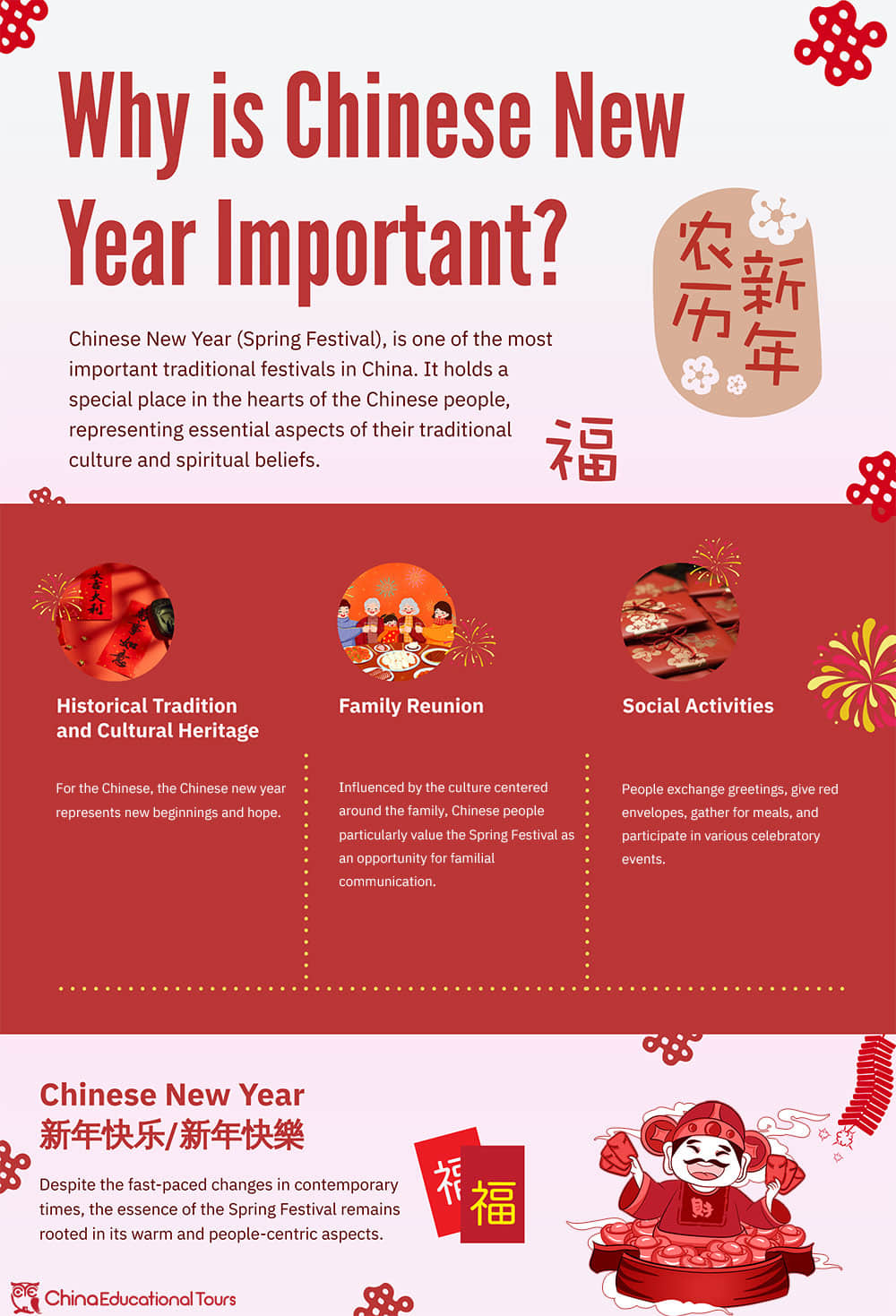
For the Chinese, the Chinese New Year symbolizes new beginnings and hope.
The Chinese New Year/Spring Festival is a wonderful, family-centred celebration that gives people the chance to reconnect with their roots, family and emotions. Homecoming is a really important part of it. No matter where people are, they rush home to meet their dear relatives, which is such a lovely way of soothing their hearts. Reunion is so important for strengthening family bonds.
The Chinese culture is all about family, so they really understand the significance of the Spring Festival in fostering family ties.
The Spring Festival is a time for making contacts. People greet each other, present red envelopes, gather for meals, and engage in all sorts of festive activities. Such activities help to build social bonds and friendships.
How Long is Chinese New Year? And What Activities can Chinese do during Chinese New Year?
The Chinese New Year lasts for 16 days,from Chinese New Year's Eve to the Lantern Festival. The three most important days are Chinese New Year's Eve, Chinese New Year's Day and the Lantern Festival.
The 3 most important days are Chinese New Year's Eve, Chinese New Year's Day and Lantern Festival.
Chinese New Year Begins - Chinese New Year's Eve - Chuxi 除夕(Pinyin: chúxī) or Da Nian San Shi 大年三十 (Pinyin: dà nián sān shí)
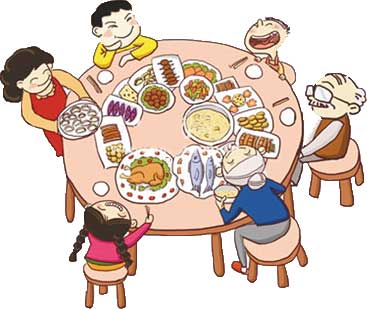
The day before Chinese New Year is the Lunar New Year’s Eve, also known as Chuxi. People in northern China like eating dumplings, but those in the south like eating glutinous rice cakes.People will stay up late waiting for the clock to strike 12. setting off firecrackers is allowed in countryside, but people who live in big cities can only set off firecrackers in the designated places for protecting environment.
See more information about Chinese New Year Eve’s Dinner - Nian Ye Fan
Chinese New Year's Day - Da Nian Chu Yi 大年初一 (Pinyin: dà nián chū yī)
On the first day of the Lunar New Year, people may wear new clothes for the festival. The elders will give lucky money to children to wish them good luck in the New Year. It’s an important way to enhance communication by visiting relatives and friends.
There are no other traditional festivals which are more significant than Chinese New Year with its time-honored history and rich social civilization. There are a series of ceremonies in this long holiday of celebration, in which traditional Chinese nationality and folk culture are observed. In its historical development, Chinese New Year is not a simple festival, but ties in with Chinese people’s everlasting emotion and cultural identity. It is the perfect occasion to taste the fruit of happiness.
Chinese New Year Ends: the 15th day of Lunar January - the Lantern Festival (元宵 yuán xiāo)
Chinese New Year typically lasts for 15 days, concluding with the Lantern Festival on the 15th day of the first lunar month. So, the festivities are considered officially over after the Lantern Festival.
Each day of Spring Festival: Title and Activities
During the Spring Festival, each day has a special name and activities. The table below offers a brief introduction.
|
2025 (m/d) |
Lunar Date | We refer to it as... | Activities |
|---|---|---|---|
| 01/28 | Lunar December 29th |
New Year's Eve
Chuxi (除夕 chú xì) |
Worshipping gods and ancestors, making dumplings, having a big family dinner, and staying up late on Chinese New Year's Eve. |
| 01/29 | Lunar January 1st (正月初一 zhèng yuè chū yī | 大年初一 dà nián chū yī) |
Chinese New Year's Day
Sanyuan Day (三元日 sān yuán rì) Chicken Day (鸡日 | 雞日 jī rì ) |
Wishing each other a happy new year, receiving lucky money, and enjoying activities like playing mahjong. |
| 01/30 | Lunar January 2nd (正月初二 zhèng yuè chū èr) |
Dog Day (狗日 gǒu rì)
Day of the Rice Goddess (米娘娘日 mǐ niáng niáng rì) Money God Worship Day (祭财神日 jì cái shén rì) Son-in-law Welcoming Day (迎婿日 yíng xù rì ) |
Welcoming the God of Wealth and visiting the maternal family |
| 01/31 | Lunar January 3rd (正月初三 zhèng yuè chū sān) | Pig Day (猪日 zhū rì) | Typically staying at home, not hosting guests, and relaxing with family. If there are many relatives, there might be visits to their homes for New Year's greetings. |
| 02/01 | Lunar January 4th (正月初四 zhèng yuè chū sì) |
Sheep Day (羊日 yáng rì)
Welcoming the Kitchen God Day (迎灶神日 yíng zào shén rì) |
Visiting relatives and friends. Around 4 p.m. in the afternoon, prepare offerings of fruits and vegetables, light incense, burn gold paper, and set off firecrackers to welcome the Kitchen God. |
| 02/02 | Lunar January 5th (正月初五 zhèng yuè chū wǔ) |
Ox Day (牛日 yáng rì)
God of Wealth's Birthday (财神生日 | 財神生日 cái shén shēng rì) Powu Festival (破五节 pò wǔ jiē) |
Setting off firecrackers, cleaning, and welcoming the God of Wealth. |
| 02/03 | Lunar January 6th (正月初六 zhèng yuè chū liù) |
Horse Day (马日 mǎ rì)
Opening Day for Business (开市日 kāi shì rì) Day of Dispelling Poverty (送穷日 | 送窮日 sòng qióng rì ) |
Going on a trip and opening for business |
| 02/04 | Lunar January 7th (正月初七 zhèng yuè chū qī) | Human Day (人日 rén rì) | Eating noodles, going out for fun, seeking blessings, and ascending heights for a distant view. |
| 02/05 | Lunar January 8th (正月初八 zhèng yuè chū bā) |
Shunxing Festival (顺星节|順星節 shùn xīng jiē)
Day of the Grain (谷日 gǔ rì) |
Praying for blessings, and the company officially resumes work and opens for business. Most people go back to work. |
| 02/06 | Lunar January 9th (正月初九 zhèng yuè chū jiǔ) | Birthday of the Jade Emperor (天诞日|天誕日 tiān dàn rì , 上九日 shàng jiǔ rì , 天日 tiān rì) | A day for blessings and auspicious activities, such as going out for errands. |
| 02/07 | Lunar January 10th (正月初十 zhèng yuè chū shí) | Stone's birthday (石日 shí rì) | In Yangjiang, Guangdong, there is a tradition called 'Kaideng'. |
| 02/08 | Lunar January 11th (正月十一 zhèng yuè shí yī) | Son-in-Law Day (子婿日 zǐ xù rì) |
Father-in-law's Banquet for the Son-in-law. In Majie, Fengxian County, Henan, every year during the 11th day of the lunar new year, the "Majie Shu Hui 马街书会|馬街書會 mǎ jiē shū huì" is held. The Majie Shu Hui is a grand gathering of Chinese folk traditional arts and is recognized as one of the national-level intangible cultural heritages. |
| 02/09 | Lunar January 12th (正月十二 zhèng yuè shí èr) | Yunkai Jie (云开节 yún kāi jiē) | On the twelfth day of the lunar new year, it is the last day for relatives and friends to reciprocate with feasts and toasts. "Yunkai" signifies the dispersal of festive banquets. Additionally, with the Lantern Festival approaching, preparations for the Lantern Festival celebrations are underway. |
| 02/10 | Lunar January 13th (正月十三 zhèng yuè shí sān) | Lantern Testing Day (试灯|試燈日 shì dēng rì) | On this day, people test all the lanterns used for the Lantern Festival. Additionally, coastal fishermen consider the 13th day of the lunar new year as the birthday of the Sea Dragon King. On this day, they perform rituals to the sea and then prepare to start working and go fishing. |
| 02/11 | Lunar January 14th (正月十四 zhèng yuè shí sì) | Birthday of the Linshui Goddess (临|臨水娘娘生日 lín shuǐ niáng niáng shēng rì ) | Many places host Miaohui (庙会|廟會 miào huì, which are unique traditional folk cultural events in China that combine eating, drinking, and entertainment. |
| 02/12 | Lunar January 15th (正月十五 zhèng yuè shí wǔ) | Lantern Festival (元宵 yuán xiāo) | Eating tangyuan or yuanxiao, enjoying lantern displays, solving lantern riddles, dragon dancing, and lion dancing. |
What are the activities before Chinese New Year?
|
2025 (m/d) |
Lunar Date | We refer to it as... | Activities |
|---|---|---|---|
| 01/22 | Lunar December 23rd (腊|臘月二十三 là yuè èr shí sān) |
Xiaonian in northern China (北方小年 běi fāng xiǎo nián)
Kitchen God Festival (灶王节 zào wáng jiē) |
Worshipping the Kitchen God, cleaning the house, and eating dumplings. |
| 01/23 | Lunar December 24th (腊|臘月二十四 là yuè èr shí sì) |
Xiaonan in Southern China (南方小年 nán fāng xiǎo nián)
Cleaning Day (扫尘日|掃塵日 sǎo chén rì) |
Year-end deep cleaning, eating tangyuan. |
| 01/24 | Lunar December 25th (腊|臘月二十五 là yuè èr shí wǔ) | Welcoming the Jade Emperor (接玉帝 jiē yù dì) | Chinese saying:"On the 25th day of the twelfth lunar month, grind the mill to make tofu." |
| 01/25 | Lunar December 26th (腊|臘月二十六 là yuè èr shí liù) | Chinese saying:"On the 26th day of the twelfth lunar month, cut New Year's meat" | Preparing festive meats, taking a bath, and getting a haircut for the upcoming New Year celebration. |
| 01/26 | Lunar December 27th (腊|臘月二十七 là yuè èr shí qī) | Preparing New Year snacks and items, such as firecrackers, Spring Festival couplets, new clothes, etc., taking a bath, and getting a haircut. | |
| 01/27 | Lunar December 28th (腊|臘月二十八 là yuè èr shí bā) | Making steamed buns, dumplings, pounding rice cakes, hanging lanterns and streamers, and putting up window flowers. | |
| 01/28 | Lunar December 29th (腊|臘月二十九 là yuè èr shí jiǔ) | Little New Year's Eve (小除夕 xiǎo chú xī) | New Year preparations, as well as activities involving the worship of Yue Fei, are observed in Fujian and Zhejiang provinces. |
See more Customs of Chinese New Year
Social Impact of Chinese New Year
Spring Festival Economy
The Spring Festival is not only a traditional festival, but also a holiday to promote domestic consumption and boost the economy. It sparks consumer demand exceeding material requirement, and helps industries including those that involve culture, commerce, tourism, transportation, catering, entertainment and other fields. With the development of modern network technology, giving envelopes online by Alipay or WeChat is also greatly popular.
Spring Festival Travel Rush (春运 Chun Yun)
This is a peak time for passenger transportation. During a 40-day travel period, there are multiple flows, such as students, migrant workers, family visitors, in numbers which amount to no less than 2 billion people, or about 1/3 of the population of the world. The Spring Festival rush has been listed as the world’s largest cyclical peak in the world records.
Watch the video to find out How to Celebrate Chinese New Year
Although the times change rapidly, the way back home and joy of reunion are the same. The nature of the festival is also warm and cordial, and the spirit of festival will reside within people’s hearts forever.
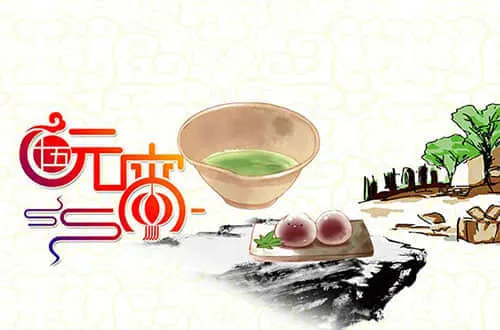 Chinese Lantern Festival
Chinese Lantern Festival 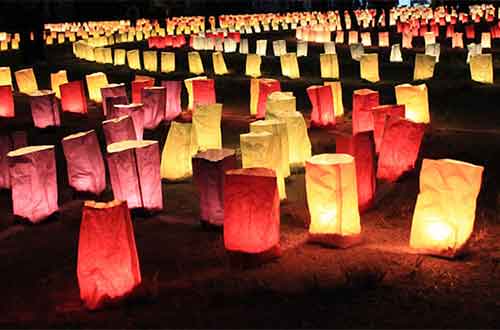 About Chinese Lanterns
About Chinese Lanterns 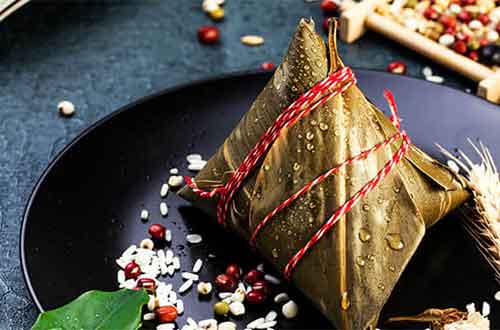 Popular Foods for Special Occasions
Popular Foods for Special Occasions 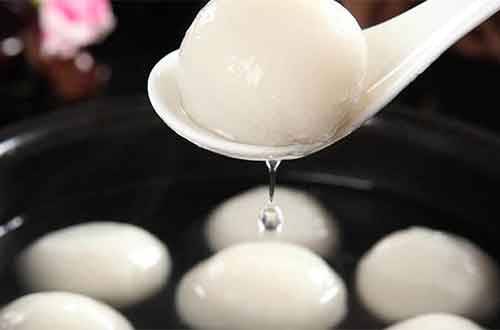 Differences between Yuanxiao and Tangyuan
Differences between Yuanxiao and Tangyuan